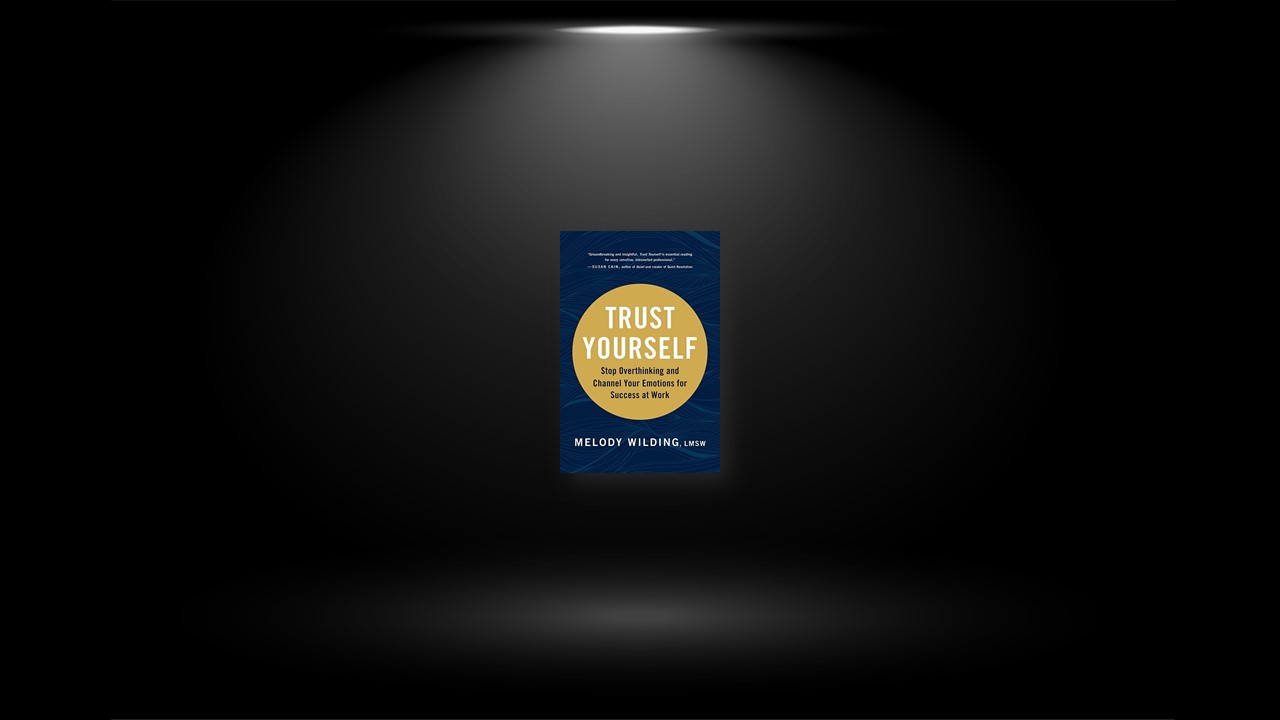Know Yourself
Sensitive striving has many variations, but it shows up most often as one of six core qualities that form the acronym STRIVE. You may easily recognize yourself in some of these descriptions while some of the others might not feel as familiar or relevant. That’s okay. The STRIVE qualities exist on a spectrum like any other trait.
Sensitivity. Processing complex information comes naturally to you because you’re perceptive and have a heightened response to what’s happening within and around you. You thrive best with structure and routine. Without it, you get easily overstimulated, especially if you’re under pressure (both real and imagined).
Thoughtfulness. You’re highly self-aware, reflective, and intuitive. Your ability to see nuance and to synthesize information makes you especially original and creative. On the flip side, your brain is often racing. It’s not uncommon for you to overanalyze day-to-day experiences, and your above-average self-awareness can veer into self-consciousness and self-criticism.
Responsibility. You’re dependable and people trust you and look to you for support. Hardworking (perhaps to a fault), you can’t bear to let people down, even if it entails sacrifice. A never-ending desire to be liked and to please others is exhausting, contributing to burnout.
Inner Drive. Sensitive Strivers live to exceed expectations, not only on performance reviews, but in every aspect of life. You devote substantial energy to your career and care deeply about making an impact. Nothing makes you more excited than hitting goals or knocking items off your (very long) to-do list, but you often set an unrealistically high bar for success.
Vigilance. You are keenly attuned to changes and tend to be aware of subtleties in your environment, from your boss’s body language to the general mood of a meeting. You listen well and try to be responsive to people’s needs. Being on high alert can be draining, however, and you may sometimes perceive danger or a threat where there is none.
Emotionality. Sincere and empathetic, you feel things in a big way and have complex emotional responses. You’re able to experience the richness of positive emotions like inspiration and gratitude, but can also get stuck in unpleasant feelings like annoyance and disappointment.
The Worst Hangover of Your Life
The Honor Roll Hangover isn’t the kind of hangover that you fix with a bacon, egg, and cheese sandwich. It’s a form of achievement addiction that follows Sensitive Strivers from childhood into the workplace. This kind of hangover results in the same anxiety, fatigue, and emptiness you might feel after a night of drinking too much, but it comes about when the beliefs and actions that once helped you excel in the classroom start to hold you back and cost you your inner peace.
The Honor Roll Hangover tends to show up in the following ways: You’re fixated on goal-setting. If you’re not the best, you’re not good enough. You feel like an imposter. You focus on doing things the right way.
Give Up Goals
Having grand ambitions and goals aren’t the problem. What’s unhealthy is how the Honor Roll Hangover triggers you to relate to them and your motivation for pursuing them, all of which ultimately drives an imbalance in your STRIVE qualities. Moving from the Honor Roll Hangover to trusting yourself, then, requires evaluating when and why your ambitions no longer serve you, so you can release what’s not working and create more room for what will. Here’s how to discern when you may need to rethink a goal or priority—or let it go altogether.
When the goal wasn’t yours in the first place. If you want a promotion because you’re excited to grow, great. But if you’re working your way up the ladder just because you’re driven by a sense of competition or obligation, check yourself. Telltale signs your Responsibility and Vigilance are off balance include saying to yourself you should, have to, or need to pursue something versus wanting to. Signing up for a half-marathon because everyone at the office is doing it is very different than registering because you crave the physical challenge. The former is influenced by fear of missing out, while the latter is an inner longing.
When the goal brings you more distress than benefit. Nothing is fun all the time, no matter how much you love it. It’s also normal for your goals to feel a little bit scary and for you to be nervous about whether you can accomplish them or not. But some negative feelings go beyond a healthy sense of trepidation and bring profound dread, sleepless nights, or other health consequences. These are little (or big) nudges from your Emotionality and Sensitivity that the Honor Roll Hangover is at play. For example, your stomach may lurch at the thought of spending your entire workday on client services, even though it sounds cool to someone else.
When you’re more fixated on the results than the process. Your Thoughtfulness can turn into rigidity, and when this happens you may get so caught up in achieving and pleasing that you fail to consider whether or not you actually want to acquire the skills you need to reach a goal in the first place. For example, you may set your sights on growing your business to one million dollars a year, but secretly, you don’t really want what comes with a company that size (like building a team, managing budgets, etc.).
When you’re abandoning yourself. You’re likely to outgrow certain dreams, but an unchecked commitment to follow through at all costs can keep you stuck to outdated priorities despite the fact that your enthusiasm has disappeared. When your STRIVE quality of Inner Drive is unbalanced, goals can become all-consuming, and soon you can find yourself neglecting your well-being in the name of getting things done.
Start Before You’re Ready
Waiting until you feel ready may feel like the safe option, but it’s actually a losing bet. So how do you stop doubting yourself and give yourself the permission you need to succeed, make mistakes, and be who you are? The secret is to just start, specifically to start before you feel ready.
The challenge is to be okay with the concept of taking imperfect action and to trust your ability to figure out the details as you go. Instead of waiting to feel ready, we need to reverse the equation: To trust yourself, you must stop overthinking and start doing. Proving to yourself you can persevere is how you build inner strength. So it’s essential you start now to become the person you admire.
Imperfect action is not only a process you will use for the rest of this book to change the habits and beliefs that have held you back, but it is also a way of life you can use to approach all of your goals and dreams now and for years to come. It’s the essential ingredient that will allow you to approach yourself differently without letting excuses or judgment stop you. If you find yourself hesitating or paralyzed by concerns about what’s to come, try to: Focus on your very next best step.
What one thing could you do today that would take you nearer to your goal? It’s much easier to wrap your head around and take action toward a single next step rather than trying to project months or years into the future. Swap procrasti-learning for just-in-time learning.
Knowledge is useless without action, so start embracing just-in-time learning. This means acquiring knowledge when you need it, for example, if your job duties change, rather than hoarding knowledge for (false) comfort. Root into your resilience. Simply reminding yourself that you can rise above challenges gives you confidence to be greater than your fears and apprehensions.
Find Your Center
No matter how intense the feeling, you can take charge of your emotional reactions before they take charge of you. Since all emotions start as energy in the body, calming your physiology is the quickest, surest way to become more present and in command of your experiences and yourself. Once you’re centered, you can make sense of your responses and hear the messages your emotions are trying to send you.
One simple way to get back to center is with a mindfulness technique called grounding. Grounding activates your parasympathetic nervous system, which is responsible for rest and recovery. When your parasympathetic nervous system switches on, your heart rate slows and blood flows to your prefrontal cortex, which improves your decision-making and concentration. Grounding directly impacts nerves in your brain’s arousal center and signals to your mind and body that it’s safe to settle down. There are dozens of different grounding exercises you can try, everything from deep breathing and progressive relaxation to visualization. Most are inconspicuous, meaning you can do them on a call, at your desk, or even while driving.
The 5-4-3-2-1 Tool. Select five things you see around you (a white notepad or a spot on the ceiling, for example). Describe to yourself in detail the things you see, either out loud or silently. Pick four things you can touch or feel, such as your tongue in your mouth or your hands in your lap. Notice the texture, temperature, and sensations you’re experiencing. Pick three things you hear (like a phone ringing or the hum of an air conditioner). Say two things you can smell (if you can’t smell anything, name your two favorite scents). Name one thing you can taste (like a lingering toothpaste taste). Engaging all five senses helps bring your attention back to the present moment.
Clench and Release. Visualize yourself gathering all your uncomfortable emotions up into your palms. Make a tight fist for five to ten seconds. Then let go and open your hands as if you were releasing the feelings and letting them melt away.
Box Breathing. Breathe in for four seconds. Hold air in your lungs for four seconds. Exhale for four seconds. Hold your breath, lungs emptied, for four seconds. Ideally, you’ll repeat these steps for three to five minutes, but even one minute is enough to experience an effect. You can find guided visualizations online to assist you in a box breathing practice if you’re just getting started.


